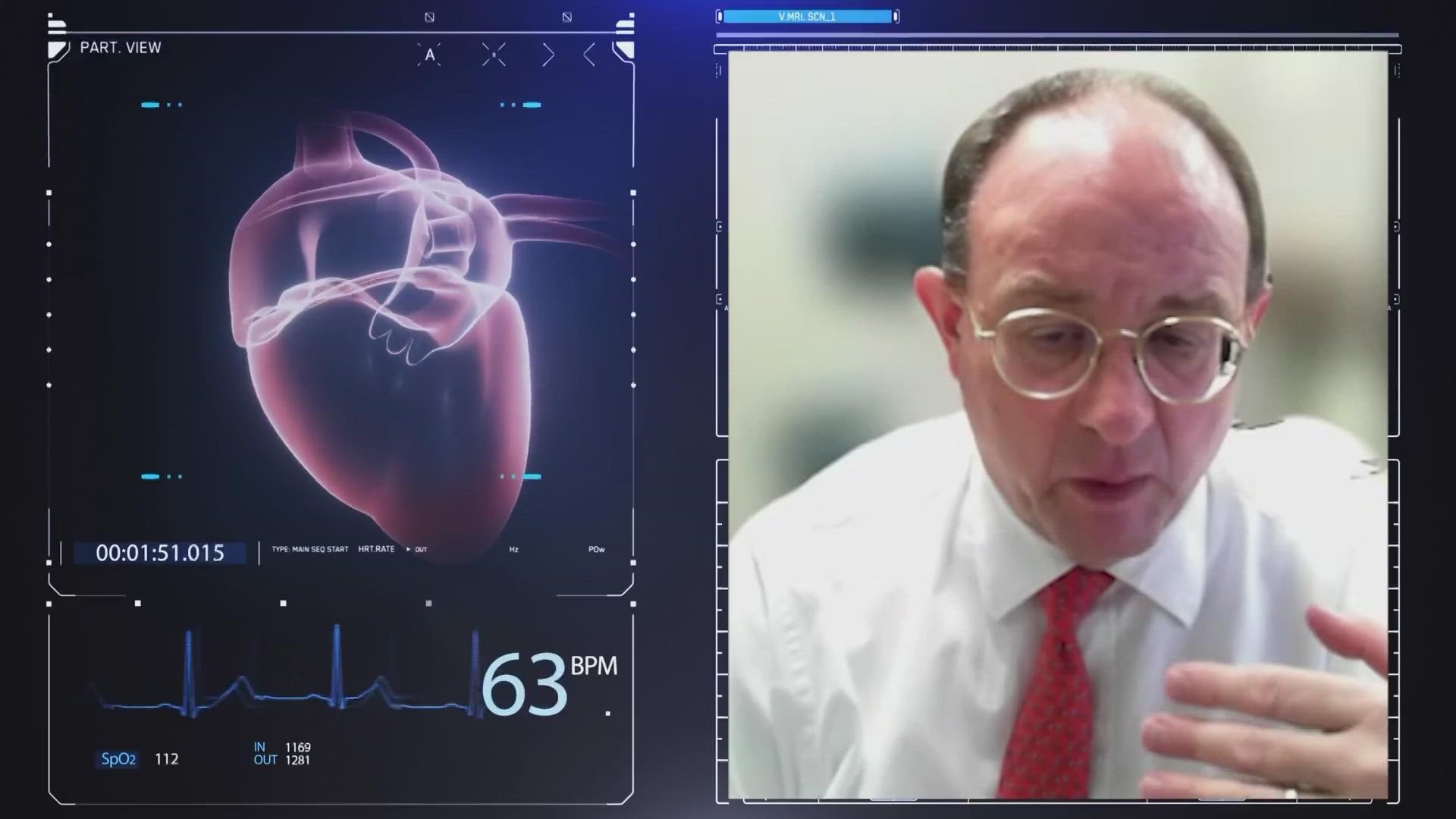SAN ANTONIO — It has only been three years since COVID made a worldwide impact, and we are still learning about the long-term effects.
At the beginning of the pandemic medical professionals realized quickly the lungs took a beating with this virus. But in the long term the heart could end up with big problems too. Dr. Allen Anderson, the Chief of Cardiology and Director of the Heart and Vascular Institute at UT Health San Antonio and University Health told us, "Calcium is an iron that is really critical to functioning. of different organelles within the cell like the mitochondria, that is the energy producing center of the cell."
Researchers from Columbia University examined autopsied heart tissue from people who had Covid. The immune system launches an inflammatory response to fight off the virus which includes much needed calcium ions to regulate heart contractions and relaxations. But Covid props open the channels used by the calcium, resulting in too much of it leaving the heart which can cause abnormal heart rhythms or decreased heart function." Dr. Anderson added, "There are probably several different mechanisms for why these things happened. And I think what we see from studies that might tell us about calcium metabolism is it gives us some understanding of maybe potential underlying mechanisms."
On the flip side another study found vaccines lower the risk of heart problems. It looked at two million people in the National Covid Cohort Collaborative database 218,000 had received at least one dose of the Pfizer or Moderna vaccine, or the J&J single dose vaccine. It found that even partial vaccination was associated with lower risk of cardiovascular events for at least six months. Dr. Anderson said, "There is a very defined risk of developing myocarditis if you have Covid. There is also an incidence of myocarditis associated with vaccines. It is not very common, it is in fact quite rare."
Dr. Anderson also said we are nowhere near finished figuring out the long term effects of the coronavirus.

